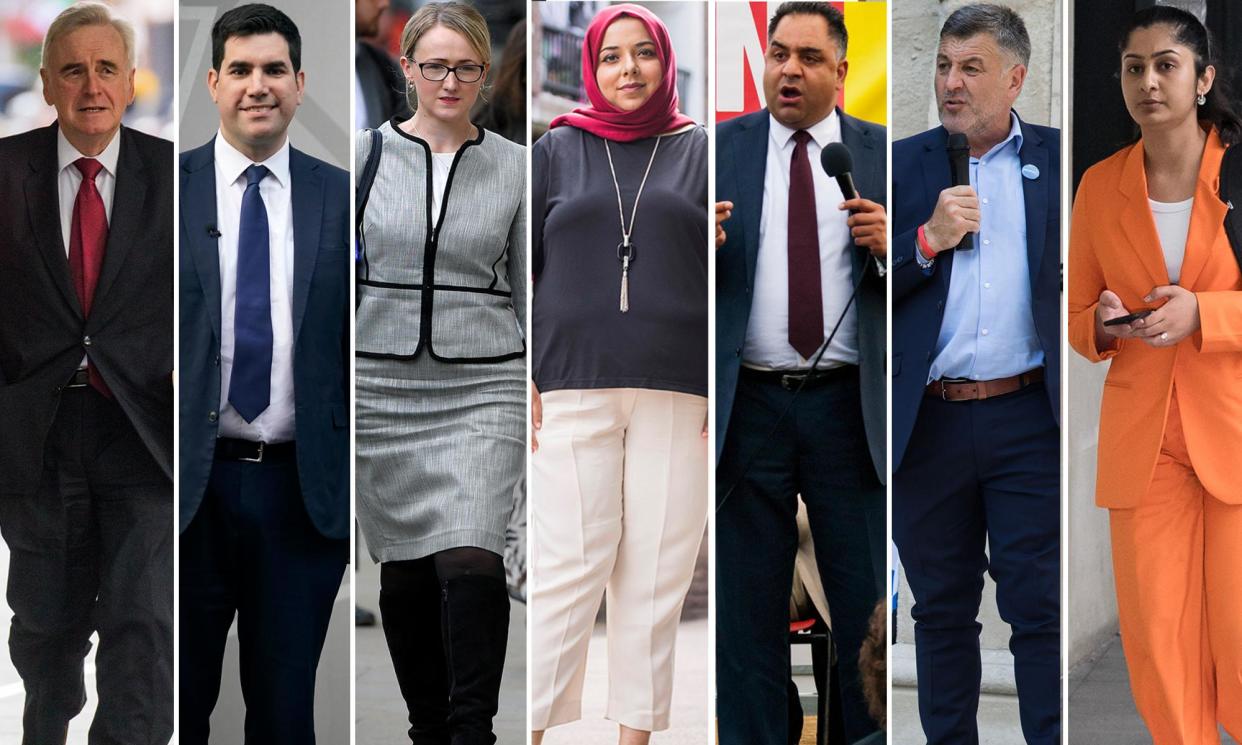Labour suspends seven rebels who voted to scrap two-child benefit cap

Keir Starmer has suspended seven MPs from the Labour party in an unprecedented response to an early rebellion supporting an amendment to scrap the two-child benefit limit.
The move to suspend MPs from the party’s left, including the former shadow chancellor John McDonnell, sent shockwaves through the party and drew criticism from some MPs who voted with the government.
The decision came after hours of hardline negotiations from party whips, which broadly contained the planned rebellion to back a Scottish National party amendment to end a policy that has been widely criticised by child poverty charities and campaigners.
Multiple MPs said they were taken aback by the whipping operation, designed to send a signal to new MPs about rebelling early in the parliament. The amendment failed by 363 votes to 103, a majority of 260 for Labour.
Before the vote, McDonnell said: “I don’t like voting for other parties’ amendments but I’m following Keir Starmer’s example as he said put country before party.”
Along with the former shadow chancellor, Apsana Begum, Richard Burgon, Ian Byrne, Imran Hussain, Rebecca Long-Bailey and Zarah Sultana all voted for the amendment, and 42 Labour MPs abstained.
All seven have had the whip suspended for six months, when there will be a review. The move caused anger among some backbenchers, who said they believed it was a strategic error.
The Nottingham East MP, Nadia Whittome, who did not vote for the amendment but spoke earlier in favour of abolishing the cap, said: “The government’s approach to party discipline has been appalling. No MP should have lost the whip for their vote this evening, especially on a policy that almost everyone in Labour opposes.
“Our party has a huge majority. If it is to govern from a position of strength, it should be able to tolerate disagreement without making threats and employing the most severe punishments.”
“This does not breed a healthy culture,” she added. “If MPs are unable to stand up to the frontbench when they think they’re wrong, the government is more likely to make poor decisions.”
The vote has also caused deep tensions between backbenchers, and a number who are supportive of the change have been angered by the fallout and believe that the rebellion will make it harder for the government to now concede on the issue and is likely to alienate new MPs. One MP said the tactics had been “all stick” rather than any real discussion of the issue.
In what appeared to be a move to mollify potential rebels, Keir Starmer indicated for the first time on Monday that he will consider scrapping the cap, which had previously been said to be unaffordable. Bridget Phillipson, the education secretary, said that removing the cap was among measures the government would look at as part of a review into child poverty.
The SNP amendment was signed by 21 MPs – including from the Green party, Plaid Cymru and three independents, one of whom was Jeremy Corbyn, the former Labour leader. Introduced in 2017, the restriction prevents parents from claiming benefits for more than two children, with some exceptions.
Siân Berry said the vote had “shown the value of Green MPs able to vote with our conscience – and not under the pressure of the party whip”.
The MP for Brighton Pavilion added on X: “This continued poverty is a political choice for this Government. We will continue to demand better from Labour.”
Though the majority of Labour MPs who had been pushing for scrapping the cap were on the left of the party, there is support across the party. Rosie Duffield, the Canterbury MP, said she would have rebelled to vote for the SNP amendment but was prevented from doing so because she had tested positive for Covid.
Kim Johnson said she decided to vote with the government “for unity”, but had previously submitted her own amendment that was not selected. Speaking in the chamber on Monday, she said her Liverpool Riverside constituency was now the most deprived in the country, with 47% of children now living in poverty.
“It is not a question of whether we can afford to adopt vital policies to alleviate child poverty, such as lifting the two-child cap; it is a question of whether we can afford not to,” she told the House of Commons, saying her focus was “debate not division”.
After the vote, she stressed on X: “We moved the dial. The campaign will continue … The massive strength of feeling is undeniable. It must be a priority for our first budget.”
Duffield said there would be continued pressure within the party for the government to scrap the cap. “I was disappointed not to have the opportunity to speak against the two-child limit but most returning Labour MPs, on the front and back benches, have been fighting against this nasty legislation since it was introduced,” she said. “We will continue to push for it to be scrapped in line with Labour’s strategy to reduce the current unacceptable levels of child poverty.”
Removing the cap is backed by the SNP, the Liberal Democrats, the Greens and Reform. Suella Braverman, who also abstained from voting, told the House on Monday that it had not worked as a measure to stop people having more children. “I believe that the cap is aggravating child poverty, and it is time for it to go,” she said.
The SNP’s Kirsty Blackman said that the “rape clause” – where women who have a third child as a result of rape must apply specifically to receive the extra benefit – was demeaning. “Even if the government are unwilling to move on the two-child cap they should be doing something about the rape clause and what people are having to prove in order to get the exemption,” she told the House.


